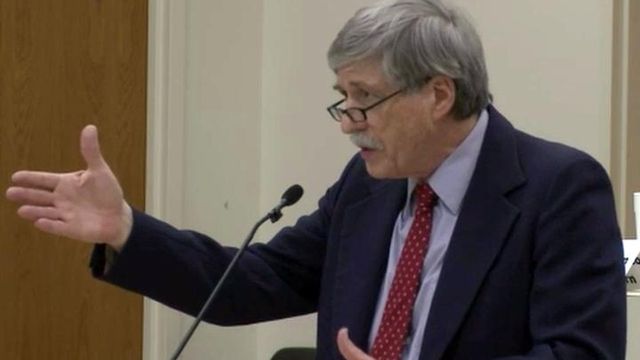House panel hears more pros, cons to voter ID
A day after dozens of people spoke for and against a plan to require North Carolina voters to present photo identification before casting their ballots, five people considered experts in the field of voter ID made their cases Wednesday to lawmakers.
Posted — UpdatedThe House Elections Committee is trying to collect as much input as possible before drafting a voter ID bill, which Republican lawmakers said could occur by the end of the month.
Bob Hall, executive director of left-leaning Democracy North Carolina, said lawmakers are getting ahead of themselves by proposing a photo ID as a cure-all for the potential of voter fraud. They haven't even defined what constitutes fraud, noting that at least 2,500 voters were given the wrong ballots last fall, which basically invalidated their votes.
"The photo ID is a fantasy tool to stop fraud," Hall said. "In some ways, you're giving people a ticket to commit fraud because you're saying, 'All you have to do is fraudulently produce this ID, and you're good to go.'"
Instead of focusing on an ID for people who go to the polls, he said, lawmakers should try to tighten up the rules for mail-in absentee ballots. In fact, he noted, treating absentee voters differently from others only invites court challenges to any ID law that the General Assembly approves.
Francis DeLuca, president of the Civitas Institute, a conservative think tank, said the potential for people voting under others' names has skyrocketed since the nation adopted one-stop voting. People can now vote at any number of places in their home county, he said.
"The days of poll workers knowing voters ended in 2000 with the start of one-stop voting," DeLuca said, adding that poll workers didn't even have a list of registered voters in 2008 to compare with the names of people walking into early voting sites.
That is only the latest check against voter fraud to fall by the wayside, he said, noting that the ability of local elections boards to verify voter residency also is hampered by same-day registrations.
Voter ID opponents have suggested that the requirement would disproportionately affect minorities, the elderly and the poor because they are the groups most likely to lack a photo ID. Some have compared the new requirement to the poll taxes and other means that Southern whites used decades ago to keep blacks from voting.
"This is not Jim Crow," Hans von Spakovsky told lawmakers while holding up his driver's license. "This is not a police dog. This is not a fire hose."
Von Spakovsky, a senior legal fellow at the Heritage Foundation's Center for Legal and Judicial Studies, said voter ID laws in other states, including Georgia, haven't suppressed black voter turnout in recent elections.
Hall countered by noting that voter turnout can be affected by various factors, including close races on the ballot.
Allison Riggs, a voting rights attorney for the Southern Coalition for Social Justice, said voter fraud is so rare that requiring an ID would more likely block registered voters, such as women who have their maiden names on a driver's license and their married names on voter rolls.
"The state must offer more than anecdotes and hysteria in order to justify a law that would restrict the right to vote," Riggs said. "This does not foster trust in the electoral process."
Keisha Gaskins, senior counsel at the Brennan Center for Justice in New York University's School of Law, noted that Virginia has liberalized its voter ID requirements in recent years after initially accepting only photo IDs. Now, people can use bank statements, utility bills and other documents to prove their identity to poll workers, she said.
"A strict ID requirement in North Carolina is unjustified for a number of reasons," Gaskins said, including it doesn't prevent fraud, it would cost the state a lot to implement and it would present a burden to some voters.
"A photo ID requirement is the worst kind of electoral policy solution," she said. "It creates an illusion of security that does not exist while offering no real solution to any identified problem."
Related Topics
Copyright 2024 by Capitol Broadcasting Company. All rights reserved. This material may not be published, broadcast, rewritten or redistributed.






